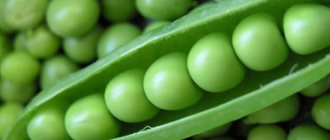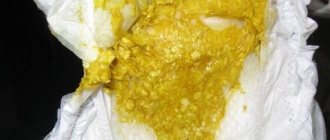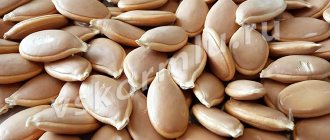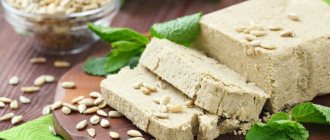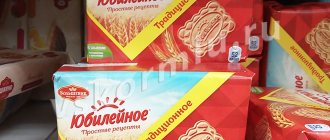The proud fiery flower has become the subject of heated discussions among nursing mothers about the dangers and benefits of consuming poppy seeds.
Photo: Depositphotos.com. Author: belchonock.
In ancient times, poppy was used by humans as an analgesic and sleeping pill. It was even given to children to improve health and prevent dementia. And now poppy plantations are grown in some places for subsequent preparations. True, all of them are produced either from unripe bolls, or even from other parts of special varieties of plants.
What we see on sale in regular stores has little to do with all the passions that overly suspicious people attribute to poppy. There are no potent narcotic substances (except for a minimal amount of codeine and morphine) in widely sold seeds.
Culinary poppy may have a slight hypnotic effect, but the manifestation of this effect depends on the characteristics of the body.
Nutritional value and composition
It turns out that the small black grains are full of useful substances. In them you can find:
- organic acids;
- vitamin C;
- vitamin PP;
- anthocyanins;
- alkaloids;
- fatty oil;
- flavonoids;
- glycosides;
- mineral components: copper, calcium, cobalt, sulfur, phosphorus, potassium, iron, sodium, magnesium.
The calorie content of poppy seeds is quite high and amounts to 505 kcal per 100 g.
Ratio of proteins, fats and carbohydrates (BJU):
- proteins - 17.5 g (21.34% of the daily value);
- fats - 47.5 g (73.08%);
- carbohydrates - 2.0 g (11.33%).
For comparison, we present similar data for two dairy products that are valuable for the baby and his mother.
- The calorie content of goat milk per 100 g is only 68 kcal. A serving of this drink covers the daily requirement of proteins (3 g) by 3.66%, fats (4.2 g) by 6.46%, carbohydrates (4.5 g) by 3.52%.
- The calorie content of cow's milk is even lower: 65 kcal per 100 g. Protein content - 3.2 g (3.9%), fat - 3.6 g (5.54%) and carbohydrates - 4.8 g (3.75%). ).
As you can see, in terms of the amount of protein (in this case, vegetable protein), poppy seeds outperform basic dairy products by almost 6 times.
As for organic calcium, poppy seeds have no competitors at all: 1400–1600 mg (according to various sources) versus 100 mg in cow’s milk with 3% fat content and 143 mg in goat’s milk.
Compound
| Elements | Effect on the body | Contents per 100 g of product |
| Vitamin E (tocopherol) | Regenerates tissue and heals wounds, normalizes hematopoiesis, stabilizes hormonal levels, slows down aging and prevents the appearance of wrinkles | 2.1 mg |
| Vitamin PP | Produces energy and controls heart function, normalizes blood circulation, prevents migraines and relieves headaches | 2.9 mg |
| Calcium | Forms the bone skeleton and tooth enamel, strengthens the walls of blood vessels, increases the body's resistance to infections | 1667 mg |
| Potassium | Stimulates brain function, normalizes blood pressure, saturates the body with energy | 587 mg |
| Sodium | Regulates water-salt metabolism, regulates blood pressure and strengthens muscles, maintains normal heartbeat | 19 mg |
| Magnesium | Ensures normal blood clotting, regulates carbohydrate metabolism, has an anti-inflammatory effect, helps with stress | 442 mg |
| Phosphorus | Increases the strength of bone tissue, strengthens teeth, improves memory, normalizes kidney function | 903 mg |
| Sulfur | Helps improve hair and nail growth, maintains the necessary water balance | 640 mg |
| Iron | Provides tissue respiration, body and nerve cell growth, normalizes material metabolism, improves blood condition | 10 mg |
| Zinc | Improves memory and attention, improves mood and relieves stress, normalizes hormonal balance | 7 mcg |
| Copper | Lowers temperature, improves blood quality, improves immunity, relieves pain and stimulates metabolic processes | 1.8 mg |
| Cobalt | Normalizes liver function, is responsible for hematopoiesis and the functioning of nerve cells | 18 mcg |
Benefits for nursing women
In addition to its hypnotic effect, poppy can boast of other beneficial properties for nursing mothers:
- anthelmintic;
- antitussives;
- fixing;
- regulating blood pressure;
- strengthening bones, hair and nails;
- adjusting hormonal levels;
- improving brain processes;
- calming.
In addition, vitamin E contained in the seeds has a beneficial effect on the development of the central nervous system, the blood vessel system and normalizes the activity of the immune system.
Sunflower seeds for breastfeeding.
How to properly introduce dishes into the diet of a nursing woman
Given the chemical composition of poppy seeds, any food products containing them should be treated with caution. The rules for eating such dishes and baking by a nursing mother are the same as for other new products.
It is allowed to eat buns or pies with poppy seeds only after the baby is 6 months old. However, there are recommendations that if a woman wants to use poppy seeds while breastfeeding, then this can be done already at 3-4 months of lactation.
Doctors explain such discrepancies in their advice by the fact that fresh baked goods contain up to 20 grams of grains, while the amount of poppy seeds in breadcrumbs and dried foods is much less. In addition, some pediatricians believe that if poppy seeds have undergone heat treatment, then the percentage of morphine and codeine in them has decreased significantly, and therefore the effect on the baby will be less.
Women should remember that even in minimal quantities, poppy seeds can cause sleep disturbances in a child. The fact is that, thanks to its chemical formula, this plant prolongs the period of the deep sleep phase, significantly reducing the baby’s surface sleep time.
Such changes can provoke disorders in the baby’s central nervous system, which can result in eating disorders, weight loss and disorders of the digestive tract. In addition, many pediatricians note the lack of serious research on the direct effect of poppy seeds on the child’s nervous system and the possibility of delays in his mental development.
So, it is possible to introduce bread and pastry products containing poppy seeds into the diet of a young mother only after 6 months of feeding. For the first test, it is recommended to use a small piece of baking, and the number of poppy seeds in it should not exceed 5 - 10 grams.
You should constantly monitor the baby’s condition, the speed of his nervous reactions and the absence of allergic manifestations to the new product. After taking a break of 5-7 days after the first dose, in the absence of pathological reactions, the introduction of various dishes with poppy seeds into a woman’s diet can be repeated. Throughout this period, the nursing mother must constantly maintain contact with the attending physician.
Impact on infants
Of course, the effect of poppy seeds during breastfeeding extends not only to the mother, but also to the baby, since many nutrients pass into breast milk.
If your child is capricious all day long and doesn’t want to fall asleep, perhaps a small amount of poppy seeds in the baked goods will gently calm him down.
But you shouldn’t rely on the same buns with poppy seeds while breastfeeding, and, even more so, you should refrain from taking the seeds as an independent dish. One bun a day - and everyone is happy.
Baking with poppy seeds – is it worth eating?
Experts say that products with poppy seeds during lactation can be eaten in small quantities - no more than 2 pieces per day. After which, some mothers breastfed the child and noticed that he quickly fell asleep. And there is nothing to worry about here, if the baby cried and was capricious a lot before, then the calming effect will have a positive effect. There are cases when the effect of poppy is not manifested in any way, which is due to the individual characteristics of the body.
In the first few months of lactation, experts advise avoiding any baking altogether. It is allowed to eat bran bread or pita bread, biscuits and oatmeal cookies (necessarily unleavened) in small portions. You should not add poppy seeds to baked goods earlier than 3-4 months after giving birth. After all, the first months of motherhood are the most difficult. The baby’s body learns to quickly adapt to everything new and learns new substances through breast milk. If your baby begins to be capricious more often, you notice rapid breathing or skin rashes, then you should not eat poppy seeds at the moment. After a month you can try again.
The optimal choice is poppy seed drying. After eating such dishes, it is necessary to carefully monitor the baby’s reaction to a new product in the diet.
The smell of a freshly baked bun attracts everyone. But a nursing mother needs to remember that she should not eat hot or uncooked products.
In addition to harming the figure, they affect the infant: they cause bloating and colic.
Poppy seeds are a universal additive that goes well with almost any baked product. Women during lactation are very fond of various dried foods, crackers and breads. This is quite logical and correct. After all, for example, bread is healthy and low in calories. They contain a high concentration of fiber and minerals, vitamin B, which do not decrease after processing, since they are prepared from low-grade flour. The assortment of bread is quite large, and even the most picky mother will be able to choose the type that suits her preferences. Flavoring additives in products are not recommended. You can eat no more than two loaves of bread (or other products) per day.
So, it is permissible to consume poppy while breastfeeding. But it is important to monitor the baby’s body’s reaction to this product.
Contraindications and risks
Direct contraindications to the use of culinary poppy seeds:
- allergic reaction;
- chronic constipation;
- diseases of the gallbladder, liver and respiratory system;
Possible negative consequences for the baby:
- bloating, increased gas formation and colic;
- disruption of the functioning of the central nervous system in babies under six months of age, due to the content of codeine and morphine in poppy seeds.
Important! Pediatricians insist that mothers should not consume poppy seeds until the child is 6 months old.
The benefits and harms of poppy seeds during breastfeeding
Before making a final decision about whether this product is for breastfeeding or not, you need to find out how it can be harmful and useful for nursing mothers and infants. The composition of the seeds is very rich:
- Vitamins (E, PP).
- Minerals (iron, zinc, copper, cobalt, magnesium, calcium).
- Cellulose.
- Fatty acid.
At the same time, all valuable microelements are easily absorbed. And there is even more calcium here than in dairy products.
Regular consumption of poppy seeds has many benefits:
- Improves good sleep in case of insomnia.
- The body feels a slight analgesic effect.
- The function of the gastrointestinal tract is normalized.
- Symptoms of chronic diarrhea are alleviated.
- Tension and fatigue disappear, the functioning of the nervous system returns to normal.
- Strengthens immunity and resistance to seasonal colds.
- Blood pressure is regulated, and the process of hematopoiesis is normalized.
- Metabolic processes are being improved.
- Increases bone strength.
- The condition of hair and nails improves.
- Hormonal levels return to normal faster after pregnancy and childbirth.
Many conservative and traditional medicine preparations are produced on the basis of poppy. These are medicines for hemorrhoids, bronchitis, diseases of the cardiovascular system and liver, etc.
Thanks to these properties, poppy becomes a desirable product on the table of a nursing mother. The baby also benefits, since valuable vitamins and microelements pass into breast milk.
Despite its beneficial properties, under certain conditions, poppy seeds can cause harm to the body. Codeine and morphine, which are part of the seeds, also penetrate into mother's milk along with vitamins and minerals. With excessive use of poppy, doses of these narcotic substances can negatively affect the baby, causing depression of the nervous system and inhibiting the development of the child.
Consumption of poppy seeds stimulates the secretion of bile, so the product is contraindicated in case of cholelithiasis and other diseases associated with the gallbladder.
It is undesirable to eat poppy seeds if you have diseases of the liver and respiratory system, as negative consequences will not keep you waiting.
Poppy is also contraindicated for constipation, an ailment that often affects women after childbirth. Consuming the product will only worsen the situation.
Don't forget about individual intolerance. Poppy seeds are a product that rarely causes allergies, but an infant has not yet developed protective mechanisms, so even harmless products can cause a negative reaction.
Is it possible for a nursing mother to poppy? Experts do not prohibit the use of this product for breastfeeding, but you need to strictly monitor the dosage to avoid unpleasant consequences. Many women who eat baked goods with poppy seeds while breastfeeding note that if you follow the measure, nothing bad happens, and the baby feels great.
Expert opinion
Breastfeeding experts from the AKEV association almost unanimously advise against consuming poppy seeds during lactation, citing the negative impact of the seeds on the baby.
Specialists with specialized medical education are not so categorical, but ask that you follow the dosage, since the effect of poppy seeds on the child’s body has not yet been fully studied.
It is better to first consult with a competent pediatrician to avoid the risk of harming your baby.
Is it possible for a nursing mother to poppy?
The introduction of poppy into the diet during breastfeeding is possible:
Condition No. 1.
Complete absence of allergic and gastrointestinal reactions to poppy seeds in pure and prepared form. Use during pregnancy.
It is allowed to administer when the child reaches 1 month. As an addition to dishes: pastries, desserts, fruits. In its pure form from 3 months.
There is a reaction - you forget about the product for a month.
There is no reaction - use poppy seeds in baking, no more than 100 grams per week.
Condition No. 2.
Tendency to allergies and negative gastrointestinal reactions to various foods.
Recommended time for entry is 6 months after birth. In case of a negative reaction, use is postponed for 1.5-2 months.
The menu of a nursing mother should be as rich as possible in essential microelements, which are also needed by the baby. Women on strict diets do not receive all the necessary substances, thereby weakly strengthening their baby’s immunity. in this case, the likelihood of illness in the baby increases significantly. To avoid this, a young mother should try to eat everything that is allowed and healthy.
A nursing woman is allowed to eat poppy seed cookies, but in small portions. After eating a little of it, you don’t have to worry about the possibility of a narcotic effect. This can only happen with a very high concentration of poppy, which is simply not present in cookies. In addition, confectionery poppy differs from wild poppy. It is specially grown and the seeds of such flowers do not have any narcotic effect.
Young mothers who have had severe allergic reactions to a particular product are advised to completely stop consuming poppy seeds in any quantity.
Rolls or dry goods?
What to choose if you want to treat yourself to a poppy seed treat?
There is no need to eat handfuls of seeds, risking exceeding the permissible dosage. It is advisable to avoid the poppy seed roll, since the seeds in it are almost the main ingredient.
Opt for baked goods with a small amount of poppy seeds.
The most common are drying and buns with poppy seeds.
Drying foods provoke constipation, so it is better to avoid them if the mother’s or baby’s body tends to lock itself up.
As for buns, they are dangerous because of their white dough, which causes indigestion in infants. Therefore, the best option is a rye bun with poppy seeds, baked without using sourdough at home.
When and how can you start eating
Considering the composition of poppy seeds, the product should be introduced into the diet of a nursing woman no earlier than the sixth month of breastfeeding. The baby's digestive system is enzymatically immature. Consumption of confectionery poppy seeds at an earlier date threatens the occurrence of allergic reactions and intestinal colic in the baby.
Introducing poppy into the mother's diet
The main rule for introducing a new product to a nursing mother’s menu is a step-by-step process. It is recommended to try a small amount of a product containing maca. For the first time, it is enough to eat a quarter of a bun with poppy seed filling. If within two days after taking the baby there are no negative reactions, then gradually the use of the product is brought to normal. The step-by-step introduction of edible poppy into the menu will ensure the safety of mother and child.
If you really want something, why not try it? After all, when a woman clearly sees a connection between the consumption of any products and the well-being of the child, then she herself will refuse such products. But if you and your child feel normal, there are no problems, so why limit yourself? Eat for your health!
Komarovsky E.O.
Official website of Dr. Komarovskiy: www.komarovskiy.net
Usage rate
Edible poppy is practically not consumed as an independent product. Most often, seeds are included in the menu of a nursing mother as an additive to baking dough or as a filling. It is recommended to include foods containing poppy seeds in your diet no more than 2 times a month. A nursing woman can consume up to 50 grams of poppy seeds at one time, provided there are no negative reactions in the baby. One teaspoon holds 5 grams of poppy seeds, and a tablespoon holds up to 25 grams of seeds. The content of poppy in products varies:
- A standard 80 gram bun contains a teaspoon of poppy seeds.
- A bun with poppy seed filling contains 20 grams of seeds.
- A medium-sized piece of pie or roll with poppy seed filling contains up to 50 grams of seeds.
- Milk of the poppy is a drink that has a calming effect. Prepared from poppy seeds, water and sweeteners (honey, dates, cane sugar). Milk from poppy seeds is prepared at home, so the poppy content depends on the recipe.
Milk of the poppy recipe for a nursing mother
To prepare poppy milk you will need:
- 3/4 cup edible poppy seeds;
- 1 glass of boiling water;
- 3 glasses of cold water;
- 1 tablespoon cane sugar.
The recipe is easy to follow:
- Rinse the poppy seeds with cold water, place in a sieve, and wait until the water drains.
- Place the washed poppy seeds in a saucepan and pour a glass of boiling water, cover with a lid, wait until the seeds have cooled.
- Place the cooled poppy seeds in a sieve and drain the water.
- Grind the prepared grains in a blender for 3 minutes. When grinding, a white liquid will appear.
- Then add 3 cups of cold boiled water and sugar to the blender, beat everything.
- The milk of poppy is ready.
Milk of poppy seeds can be stored in the refrigerator for up to 5 days.
Cosmetic bonuses
Poppy is used not only in cooking. It is also used to make wonderful face and hair masks, which are also suitable for nursing mothers.
Thanks to poppy seed oil, the skin becomes moisturized, elastic and soft, various damages heal, small wrinkles are smoothed out.
This cosmetic oil belongs to the group of semi-drying ones. And after application it makes the skin velvety to the touch, but at the same time does not give an oily sheen.
A poppy hair mask helps get rid of dandruff, makes hair strong, smooth, and gives a healthy shine even to damaged hair.
Healthy masks from poppy seeds are easy to make at home.
Nourishing mask with kiwi
- Mash the peeled kiwi and add 1 tsp to it. poppy grains.
- Grind everything thoroughly.
- Apply to face for 20 minutes.
- Rinse with water at room temperature.
What are the benefits of poppy seeds?
From time immemorial, poppy has been spoken of as a medicine. There are many recipes for infusions and decoctions that have been passed down from generation to generation. Now its healing properties have been scientifically studied, and it is actively used in folk medicine. For example, decoctions are obtained from poppy seeds designed to stabilize the nervous system and reduce cough.
Poppy infusions are popular for increased stress and sleep disturbances. They also treat diarrhea. Poppy-based preparations are known for their anthelmintic properties. They are actively used for diseases of the cardiovascular system, gastrointestinal tract, hemorrhoids, disorders of the liver and joints.
Poppy seeds are high in calories. 100 g, in addition to the natural proteins, fats and carbohydrates that a nursing woman needs, contains more than 500 kcal.
Many vitamins and minerals are present in the plant:
- cobalt. Helps blood formation, improves liver activity and the quality of fermentation;
- copper. Increases fermentation and protein metabolism rate;
- iron. Participates in oxygen exchange, renews blood;
- zinc. Regulates hormone balance;
- sulfur. Provides protein production;
- potassium. Regulates the balance of water and salt;
- sodium. Controls water and acid balances;
- magnesium. Responsible for protein synthesis;
- calcium. Strengthens the skeletal system, nails and teeth.
In addition, poppy seeds contain acids, starch and dietary fiber. A teaspoon contains 6 grams of poppy seeds. There are about the same number of them in a small bun. In a piece of poppy seed cake you can find an average of 45–50 grams.
